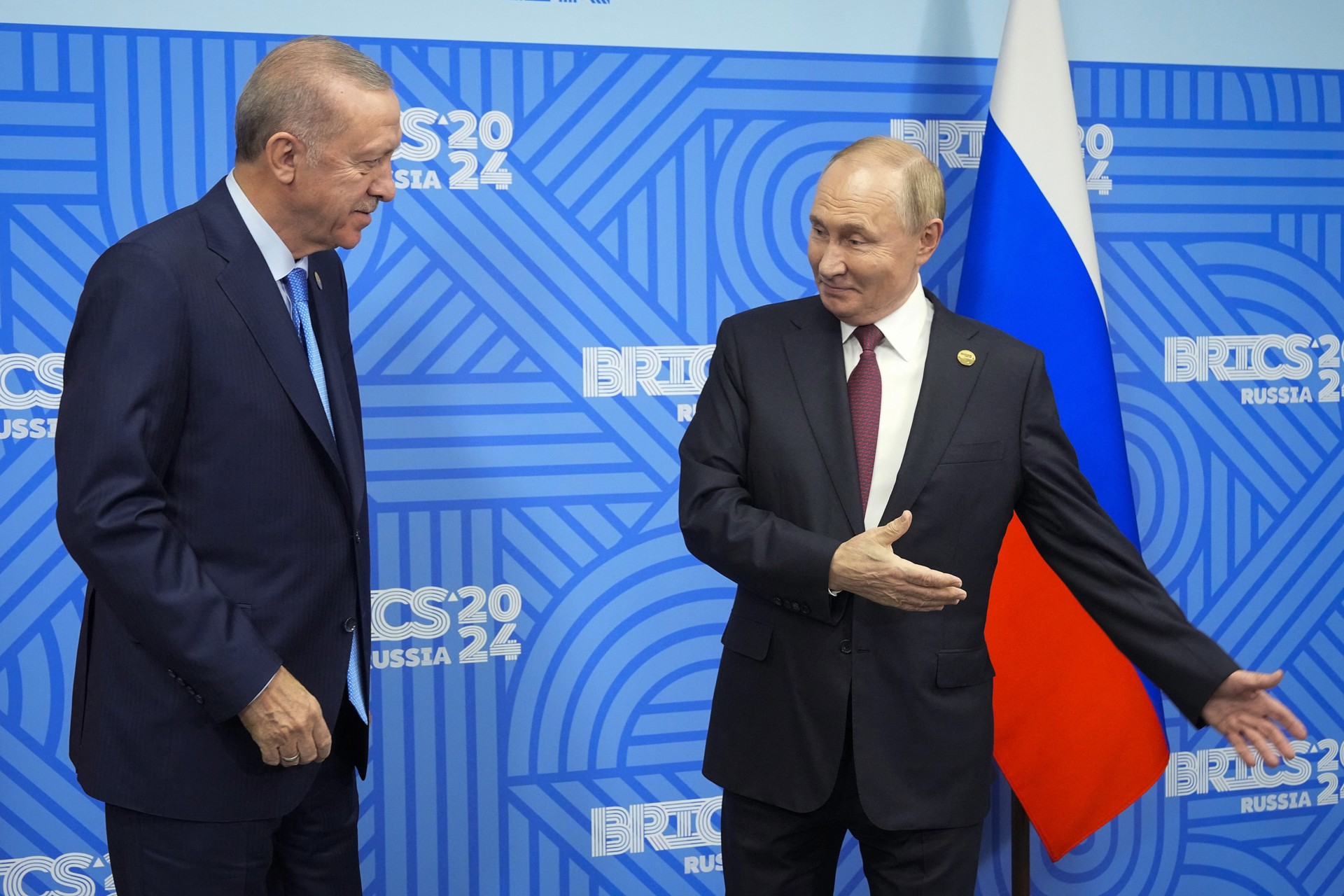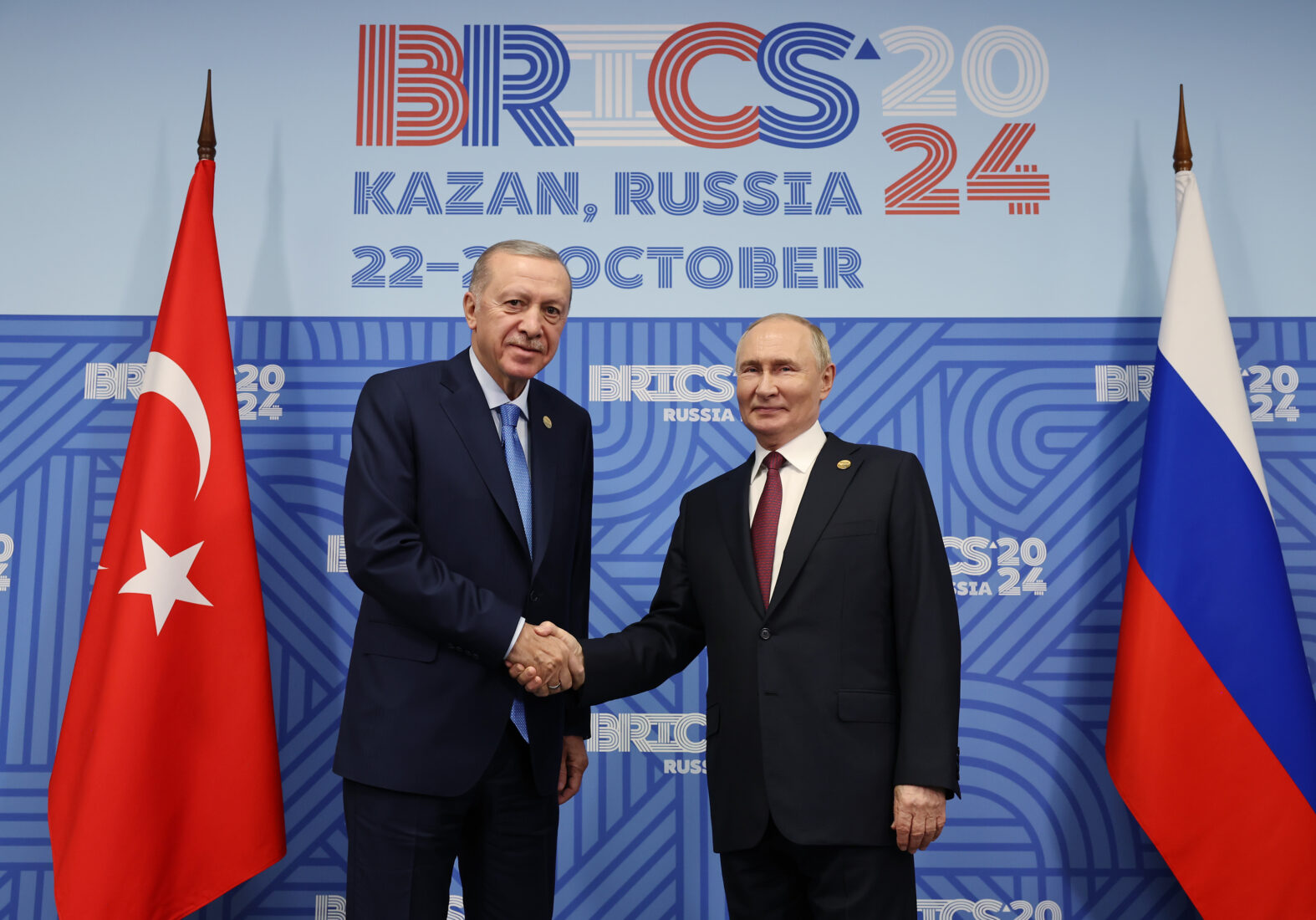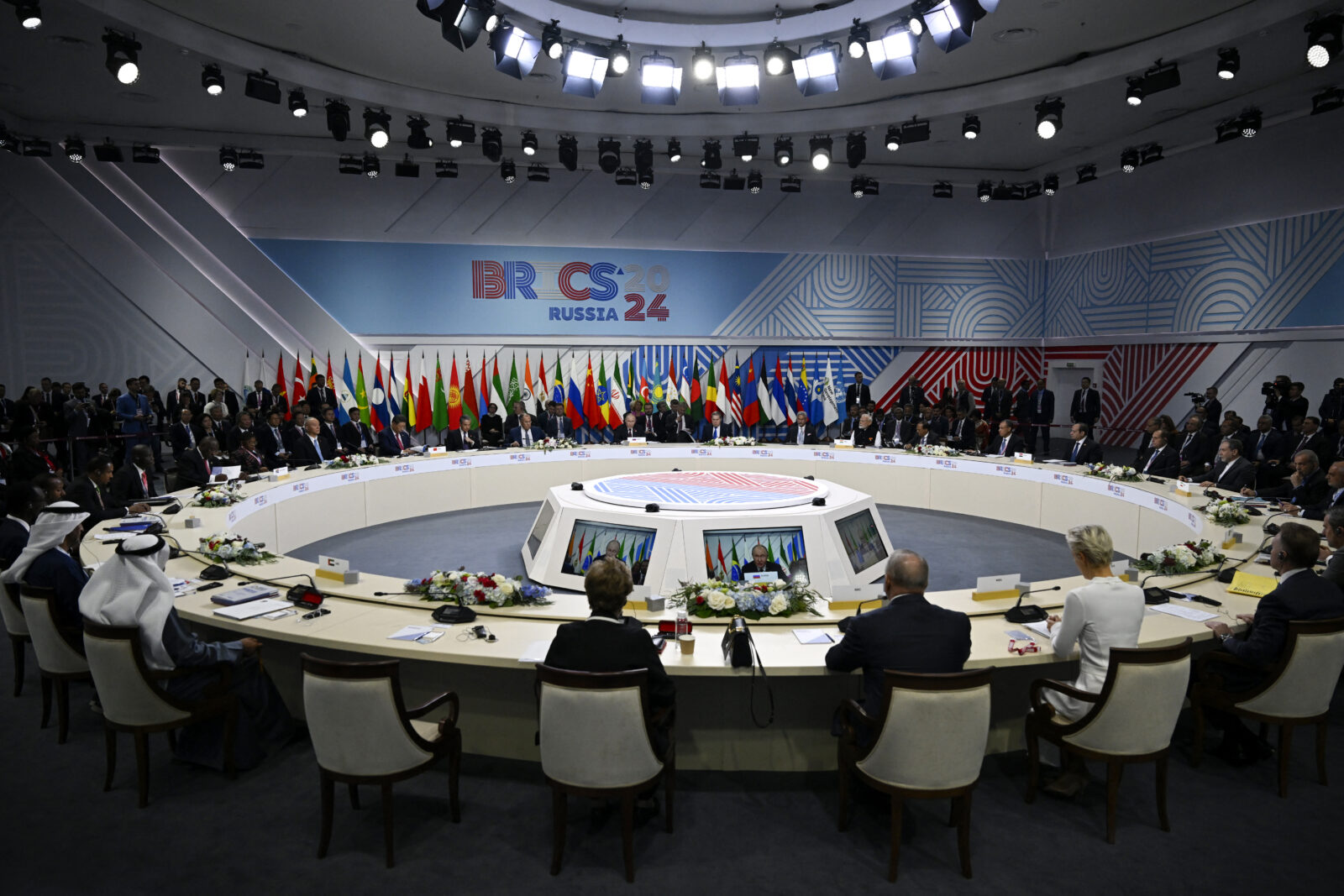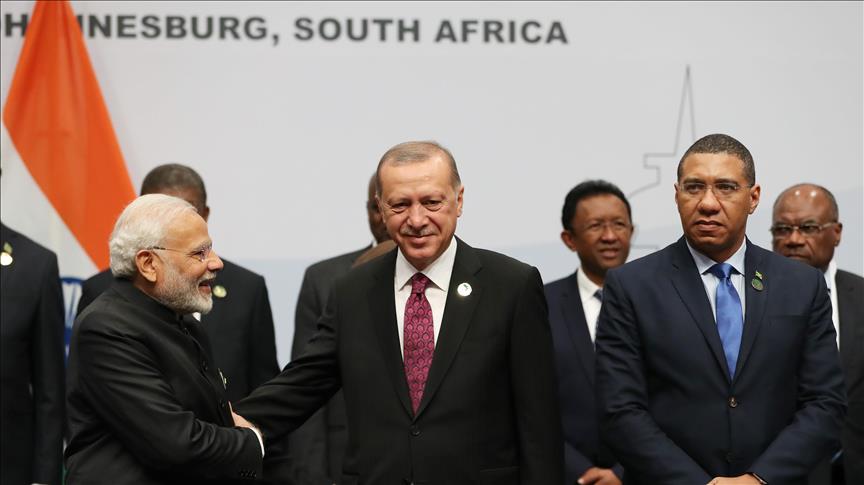
BRICS has offered "partner country" status to Türkiye, Turkish Trade Minister Omer Bolat announced. The move follows Ankara's reported formal application to join the bloc.
This designation might represent a step in the transition process toward potential full membership, Bolat said during an interview on Wednesday. However, he did not confirm whether Türkiye had accepted the status.
In September, President Recep Tayyip Erdogan's ruling Justice and Development Party (AK Party) confirmed that Türkiye had initiated an official request to join BRICS as a full member.
The move follows Ankara's ongoing efforts to diversify its economic and political partnership amid growing discontent with the European Union, its largest trade partner. Tensions with the EU have risen over delays in resuming talks on modernizing the Customs Union Treaty, despite Ankara's continuing efforts, no progress has been reported so far.

In September, Türkiye officially expressed its desire to join BRICS, a group of emerging market nations, signaling a significant shift in its international alliances. Experts suggest that Türkiye’s bid for membership is driven primarily by economic motivations, as the BRICS platform offers opportunities for expanded trade and investment without binding obligations.
But Erdogan also said, “BRICS and ASEAN offer opportunities to enhance our economic cooperation. Being part of these structures does not mean abandoning NATO. We do not view these alliances as alternatives to each other,” Erdogan said.
“Those who say ‘Don’t join BRICS or any other structure’ are the same people who kept Türkiye waiting at the EU’s door for years,” he added.
The bloc, which represents nearly half of the global population and a third of the world’s gross domestic product (GDP), allows member countries to develop economic cooperation while maintaining their sovereignty.


Brazil, Russia, India, China, and South Africa comprise the BRICS economic and political coalition. The group will expand to include Iran, Saudi Arabia, Egypt the UAE, and Ethiopia starting in January 2024, bringing the total number of members to 10.
The objective of BRICS is to promote political dialogue and economic cooperation among significant emerging economies. The BRICS countries collectively have a population of 3.4 billion and a landmass of 45 million square kilometers.